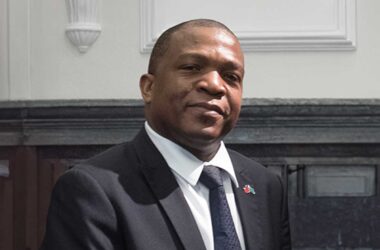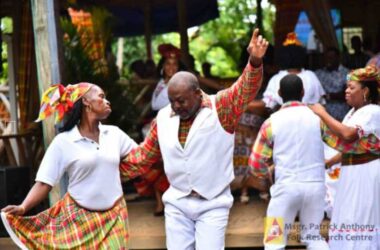GRENADIAN voters go to the polls tomorrow for the 9th time since the US-led invasion that ended the March 13th, 1979 revolution and it will be the 2nd time they will be doing so on March 13th, the revolution’s anniversary date.
On both occasions the date was set by the New National Party (NNP) of Prime Minister Dr Keith Mitchell, but it lost the first time around.
Will the NNP succeed in winning on its 2nd try? Or, will the opposition National Democratic Congress (NDC) win on March 13th a 2nd time?
The NNP, under Mitchell, has performed humungous electoral feats, including winning all contested seats. But it has also been proven not to be invincible, its electoral losses including a keen Constitutional Review contest.
The NDC, on the other hand, also has experience in government, twice winning earlier polls and always demonstrating its readiness for any electoral contest.
So, what to expect tomorrow?
Nobody knows — not even the pollsters, who have been proven wrong much too often of late to be relied upon as lighthouses that’ll spot the new dawn even before its sun rises.
The NNP has gone into the election as any ruling party would, touting its achievements in office and fulfilment of those promises that have indeed been fulfilled. The NDC naturally sought to paint the ruling party and government in the worst term possible to minimize the NNP’s vote count.
Today, apart from purely local constituency matters, most of the national problems facing CARICOM and OECS nations are essentially or bordering on the same.
Saint Lucians will therefore understand that like us, voters in other Caribbean countries are always mostly interested in are jobs, more and better opportunities, respect for their rights, improvement of their social conditions, a vision for the future and a government that will actually act on all those same old complaints the some old voters have been making in previous elections that never got attended to.
Today, matters at electoral stake across the region continue to include effects of taxation policies, how national natural resources are handled, Citizenship by Investment policies, Human Rights and the same old issues of previous elections.
The effects of new Information Technology (IT) and the instantaneity of Social Media has increasingly yielded more voters, but also with a greater proportion of young people showing growing interest in political matters at home and abroad.
Caribbean women have traditionally always been the most active and effective political operators in election campaigns. It is they who go house-to-house to canvas votes, influencing those who haven’t made their minds up — and convincing those who have, to change their minds.
Yet, even the support of women and youth can come at prices not bargained for, as parties today (that can afford) hold no brakes when it comes to flinging the bling.
The money factor has always been crucial, which is probably why no Caribbean government has yet criminalized and/or moved to prosecute against the act of ‘buying votes’ – and few show interest in anything that will reduce their chances of making money talk in elections.
Tomorrow, Grenadians will vote for their next government, whether NNP or NDC – or indeed whatever else our Westminster first-past-the-post, winner-take-all, electoral horse-race system might throw at us. (Remember the trailer-load of lessons from Saint Lucia’s own historic and unprecedented two General Elections in 21 days?)
Whichever party wins, Grenada’s problems will remain (at least) exactly what they entered the election campaign with.
The difference will be in what whichever wins will do or be able and/or willing to do to take the country out of the continuing state of national uncertainty that’s been the major factor driving all the manifesto and other promises of all contending parties.
Here’s to the winner(s)!













